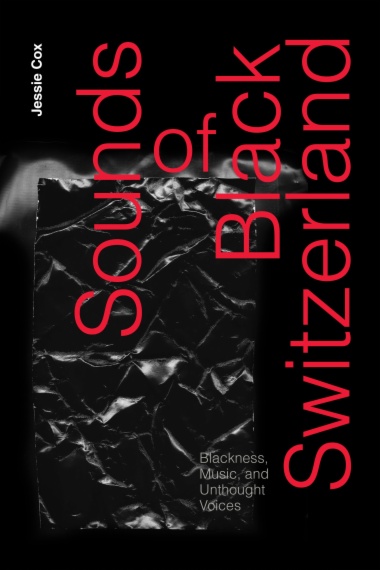Writing as a scholar, composer, and musician, Jessie Cox foregrounds the experience of Black Swiss through sound and music in his first book, Sounds of Black Switzerland. Cox, himself Black Swiss, affirms the value of Black life through sound while critiquing anti-Blackness as a cause of erasure, silence, and limitation. He examines Swiss Nigerian composer Charles Uzor’s pieces for George Floyd, work by Black Swiss musicians such as DJ Maïté Chénière, clarinetist Jérémie Jolo, and rapper Nativ, as well as his own musical collaborations with the Lucerne Festival. In these analyses, Cox tackles the particularities of anti-Blackness in Switzerland, creating a practice of listening beyond what can be directly heard to explore the radical potential of Black thought and experience in a nation often claimed to be race-free. In so doing, he ultimately shifts thinking about Blackness in relation to citizenship, immigration laws, gender, kinship, and belonging. By listening to Black Swiss and other voices inaudible to the current world, Cox theorizes new ways of practicing scholarly study and general ways of relating to others and the world.
- Cover
- Contents
- Acknowledgments����������������������
- Introduction. Black Swiss
- 1. Interstitial Listenings I: Charles Uzor’s Bodycam Exhibit 3, Part I
- 2. Blackness and Black Lives in Switzerland
- 3. Interstitial Listenings II: Blurring the Hold
- 4. Afrofuturist Archeology: Citizenship and the Delimitation of Life with Death
- 5. Interstitial Listenings III: Black Music behind the Wormhole
- 6. Mothership Connections
- 7. Interstitial Listenings IV: 8′46″ George Floyd in Memoriam and White Gaze II Black Square
- 8. Listening with Black Switzerland������������������������������������������
- 9. Interstitial Listenings V: Charles Uzor’s Bodycam Exhibit 3, Part II
- 10. Black Life / Schwarz-Sein
- Conclusion. Alongside a Chorus of Voices
- Postface. Endless Endlessness
- Notes
- Bibliography�������������������
- Index������������

